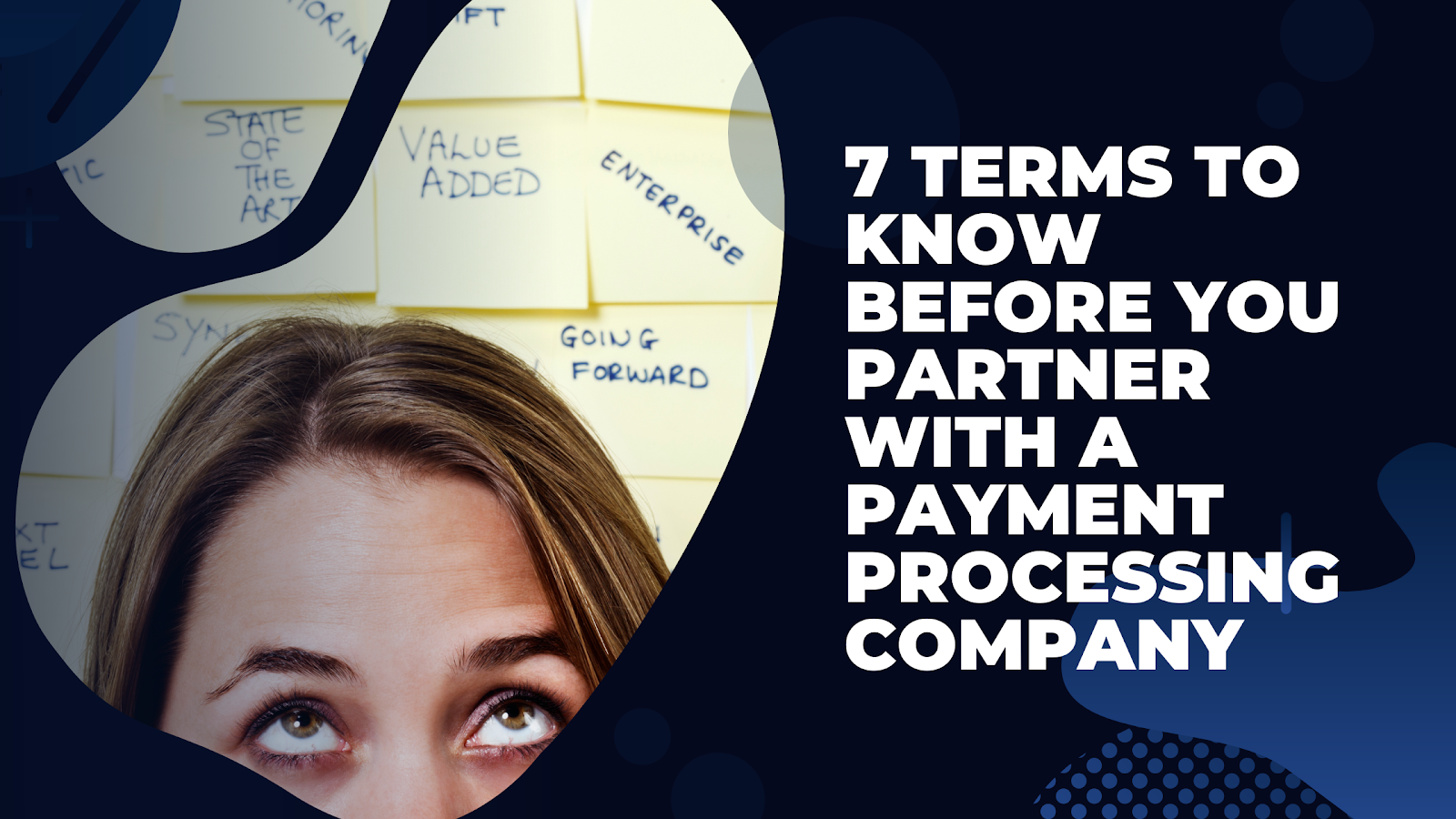You have been in business for a while. Your business is running smoothly. However, you have finally decided to partner with a payment processing company to take your business online. This decision is your head-turning moment as it could be the stepping stone to greater profitability in the near future. However, it is also risky if you plan to go ahead without knowing anything about it. It’s advisable that you know get some understanding of these terms before deciding to partner with a payment processing company. These seven terms will be really helpful for you to understand all about payment processing.
1. Payment Gateway
A payment gateway is a software system used to process your business’s credit card transactions. It accepts the customer’s payment information and then sends it to the payment processor for authorization. In some cases, the payment gateway may also manage fraud detection, authorizations, and declines.
2. Payment Processor
Payment processors are the companies that process payments for merchants. They take in money from customers and send it to the merchant. Payment processors like Payment Pilot take care of everything related to accepting payments online, including setting up your website to accept payments and processing them through one of several different options, like PayPal. Payment processors can also help manage customer disputes and chargebacks if they occur.
3. Merchant Account
Merchant accounts are bank accounts that are used to accept credit and debit card transactions. Banks or other financial institutions usually provide merchant accounts, and they’re typically used by businesses that process large volumes of transactions.
Once you open a merchant account, you’re given an account number, which you use to process payments.
4. PCI Compliance
PCI stands for “Payment Card Industry.” It’s a set of standards and guidelines that financial institutions must follow in order to protect sensitive customer information. A PCI-compliant payment processing company will have undergone rigorous security audits and maintain a strict policy of adherence to these standards at all times.
5. ACH Transactions
ACH stands for Automated Clearing House and refers to a network used by financial institutions for electronic transactions such as payroll deposits and direct debits between banks. ACH transactions are typically slower than credit card payments, but they are also much safer because they do not carry the same risks associated with exposing sensitive customer data during transmission.
6. Transaction Fees
Fees that are charged for processing transactions, including credit card and debit card transactions. Fees are usually based on the amount of the transaction, but some companies may also impose a standard flat fee per month rather than a percentage of the sale.
7. Agreements (Contracts)
When you work with a payment processing company, it’s important to know what you’re getting into. That’s why you should always read the agreement (contract) before signing it.
When you partner with a payment processing company, you’ll be signing an agreement (contract) that lays out your responsibilities and the company’s responsibilities for processing your transactions. This contract is legally binding and can help you avoid any miscommunication between you and your processor.
Conclusion: These seven terms will help you understand the basic terminology before getting into a partnership with a payment processing company.
The payment processing industry is evolving rapidly as new players always come into this market. If you have an online business or even if you just need to process a few credit cards, there are many different ways in which you can go about doing so. Whether you’re an entrepreneur, consultant, or agency, at some point, you will have to work with the payment processing industry in order to get paid.
Moreover, payment processors are adding features and developing additional products that may help your business. As a result, it’s important to understand the types of payment services that exist, the basic terminology you should know, and what you should look for before deciding which one is best suited for your business needs.
Want to know more about our payment processing services? Give us a call today: 704-464-0395


